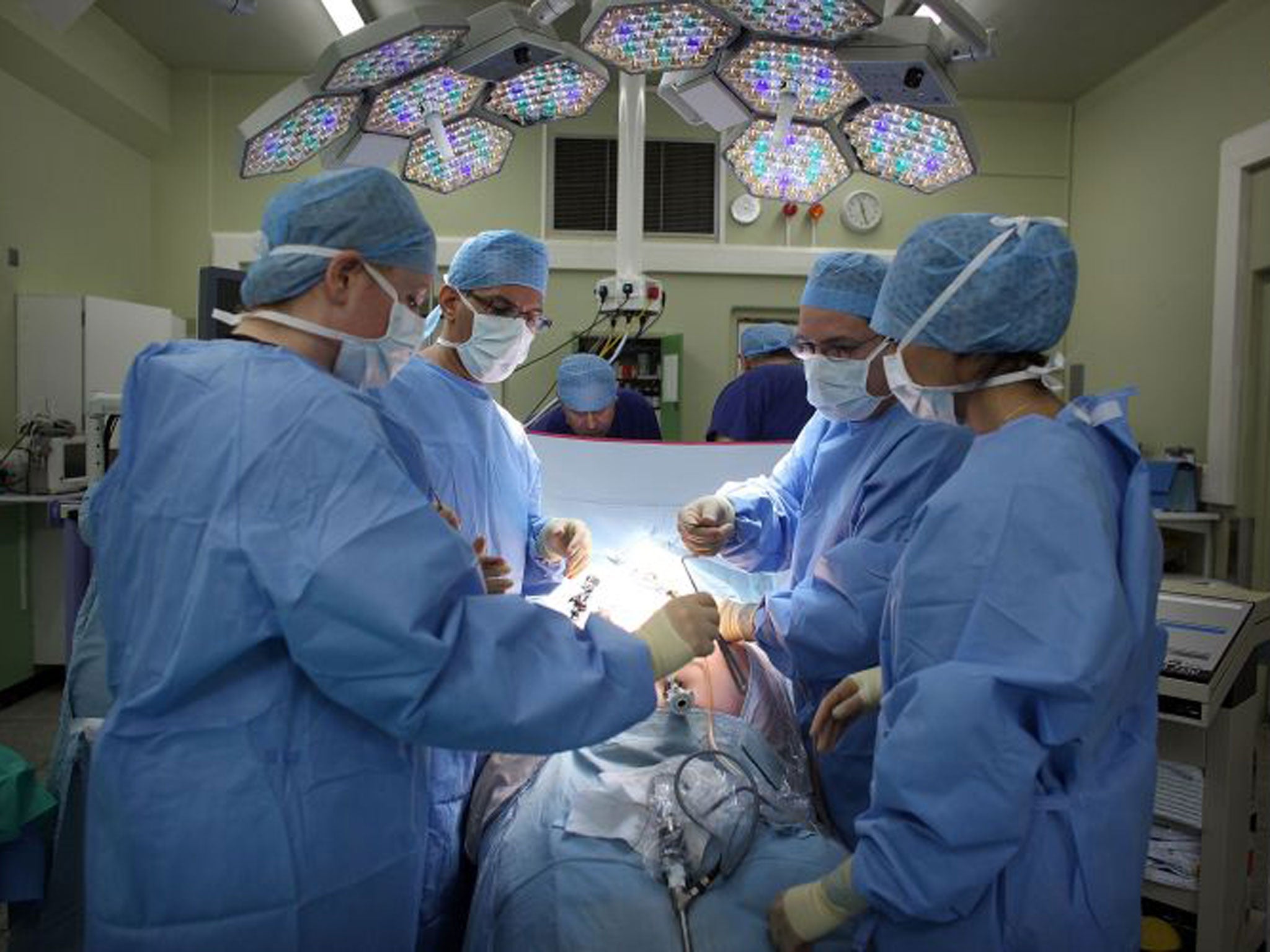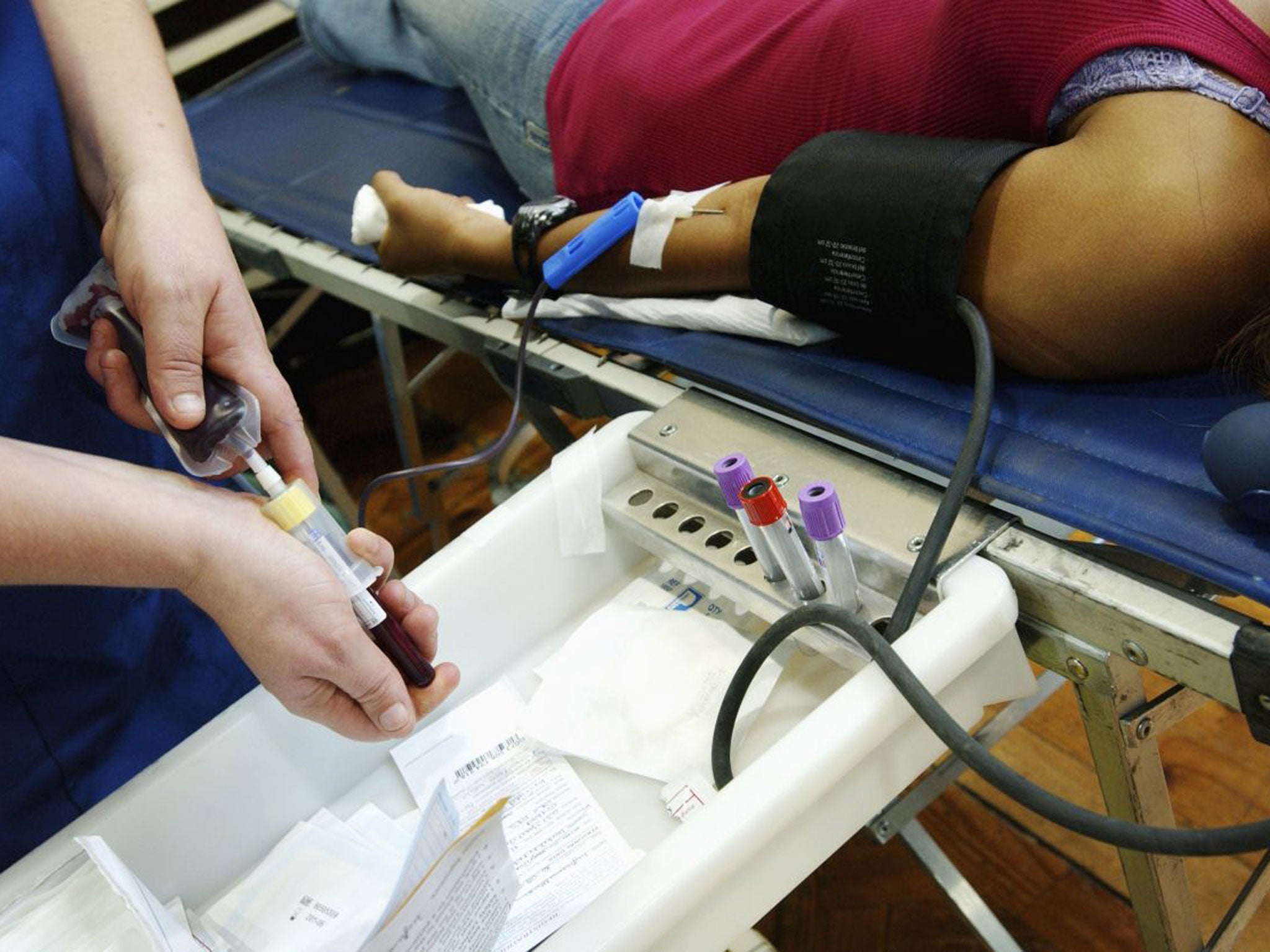Exclusive: NHS faces financial disaster in 2015 as politicians urged to find radical solution
Two finance directors in three fear their hospital will go into deficit next year as next government must choose between cuts and extra spending, say experts

Your support helps us to tell the story
From reproductive rights to climate change to Big Tech, The Independent is on the ground when the story is developing. Whether it's investigating the financials of Elon Musk's pro-Trump PAC or producing our latest documentary, 'The A Word', which shines a light on the American women fighting for reproductive rights, we know how important it is to parse out the facts from the messaging.
At such a critical moment in US history, we need reporters on the ground. Your donation allows us to keep sending journalists to speak to both sides of the story.
The Independent is trusted by Americans across the entire political spectrum. And unlike many other quality news outlets, we choose not to lock Americans out of our reporting and analysis with paywalls. We believe quality journalism should be available to everyone, paid for by those who can afford it.
Your support makes all the difference.The NHS faces a “financial crisis” next year as a budget freeze imposed by the Coalition risks pushing most hospital trusts into deficit, a leading think-tank has warned.
In a grim message to all three major parties, the King’s Fund said that whoever wins next May’s general election will need to find more funding for the NHS or face up to the reality of “significant cuts to services”.
The future of the health service is at risk unless politicians come up with radical solutions to the crisis in the coming months, it warns.
In its quarterly monitoring report, the health policy think-tank said it had encountered deep and widespread gloom among finance directors of NHS hospital trusts and clinical commissioning groups in England.
Two-thirds of NHS trust finance directors were concerned that their hospital would go into deficit in 2015-16. Another 20 per cent said they were uncertain about the future, leaving a small minority confident that they could balance the books.
The NHS in England has in effect had no real rise in spending since the Coalition Government came to power in 2010, and 65 trusts are already in deficit.
Although George Osborne has consistently protected the NHS budget from cuts, the realities of the UK’s ageing population, coupled with the rising cost of medicines and new health technologies, have increased financial demands on the service. This means keeping the budget steady amounts to a real-terms cut.
The health service’s budget, which is well in excess of £100bn, will go up by only 0.1 per cent in 2014-15.
NHS trusts have already been forced to make significant savings, in preparation for a projected budget deficit of £30bn by 2020.

However, the political impact of the Mid Staffordshire NHS Trust scandal has led to an expensive reinvestment in staff to meet Department of Health edicts on care standards. In 2015-16, the NHS will have to withstand another financial blow, as £3.8bn is transferred from the health budget to local authorities, to expand their work in caring for the elderly and disabled in the community.
While the report found that the NHS has generally been performing well, it said cracks were beginning to show.
Hospital waiting lists are growing, with 360,000 additional patients waiting for treatment in January 2014 compared with the same time last year.
The King’s Fund’s director of policy Richard Murray, a former economic adviser at the Department of Health, said that the scale of the slow-down in NHS funding under the Coalition was unprecedented, adding that the Government and the Opposition faced “a big political choice” over the impending crisis.
“In the past, each time the NHS has got very close to the wire, governments have found extra money. Tony Blair did it, the Conservatives did it before that,” he told The Independent.
“The natural response would be to do that again. The thing that is different now is the deficit-reduction debate. The health service now is a very large proportion of overall spending because it’s been protected while other areas of public spending have been cut back.
“I don’t think any of the political parties are ready for this… It’s a difficult one with deficit reduction so important and the NHS so important, they are stuck between a rock and a hard place.”
Liz Kendall, Labour’s shadow minister for care and older people, said that the Coalition had exacerbated the NHS’s financial problems by “wasting billions” on reorganising the health service. She called on the Government to publish the final year-end finance figures in one annual account to allow Parliament and taxpayers to hold ministers to account.
The Government has said that funding decisions for the NHS beyond 2015-16 would be made after the election.
A Department of Health spokesperson said: “We recognise the scale of the financial challenge that trusts are facing and are taking action to address deficits, including putting recovery plans in place.
“We are clear that NHS trusts must meet their statutory duty to balance the books, and we remain confident that the NHS will have a balanced budget at the end of this financial year.”
Join our commenting forum
Join thought-provoking conversations, follow other Independent readers and see their replies
Comments